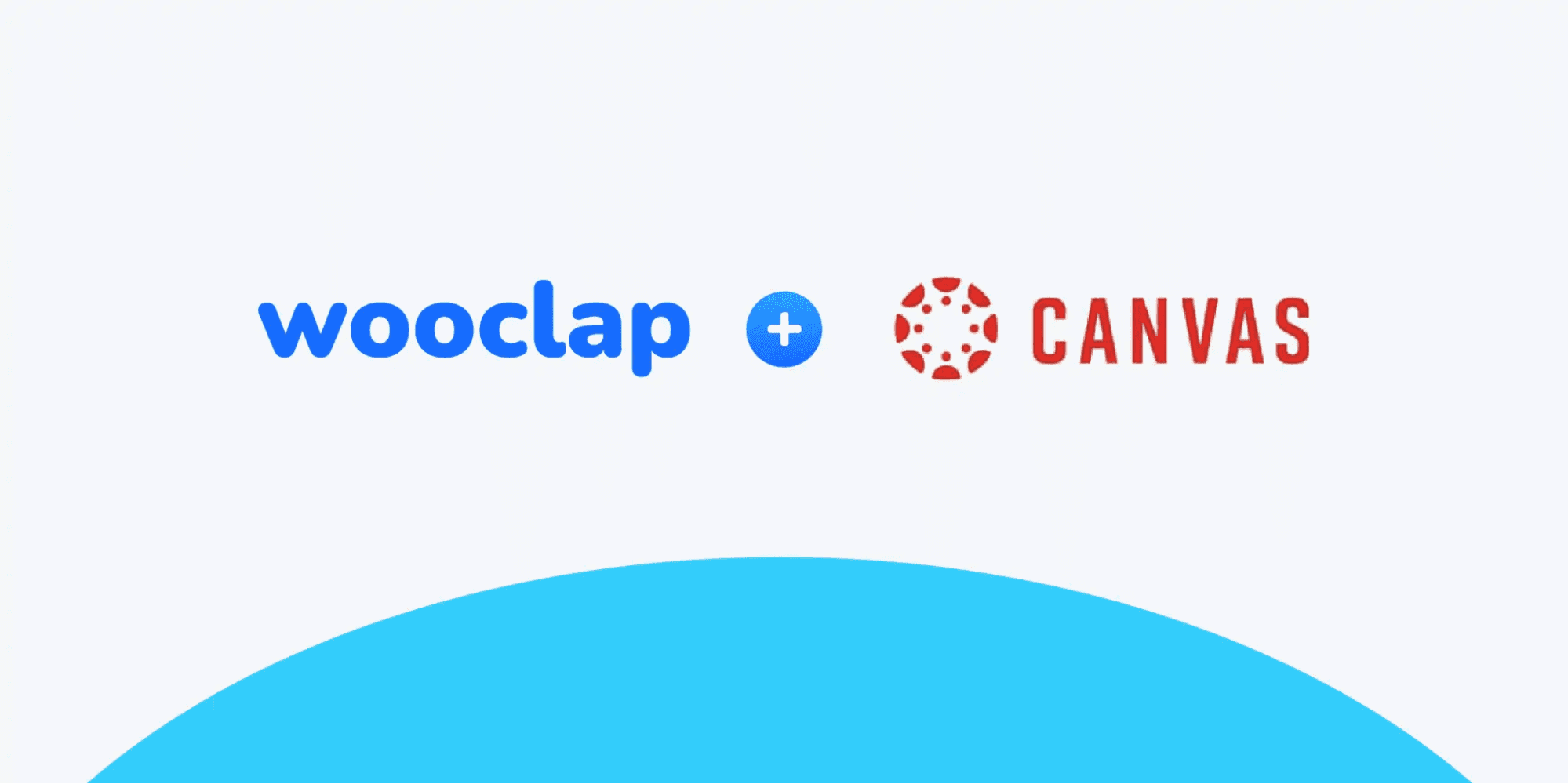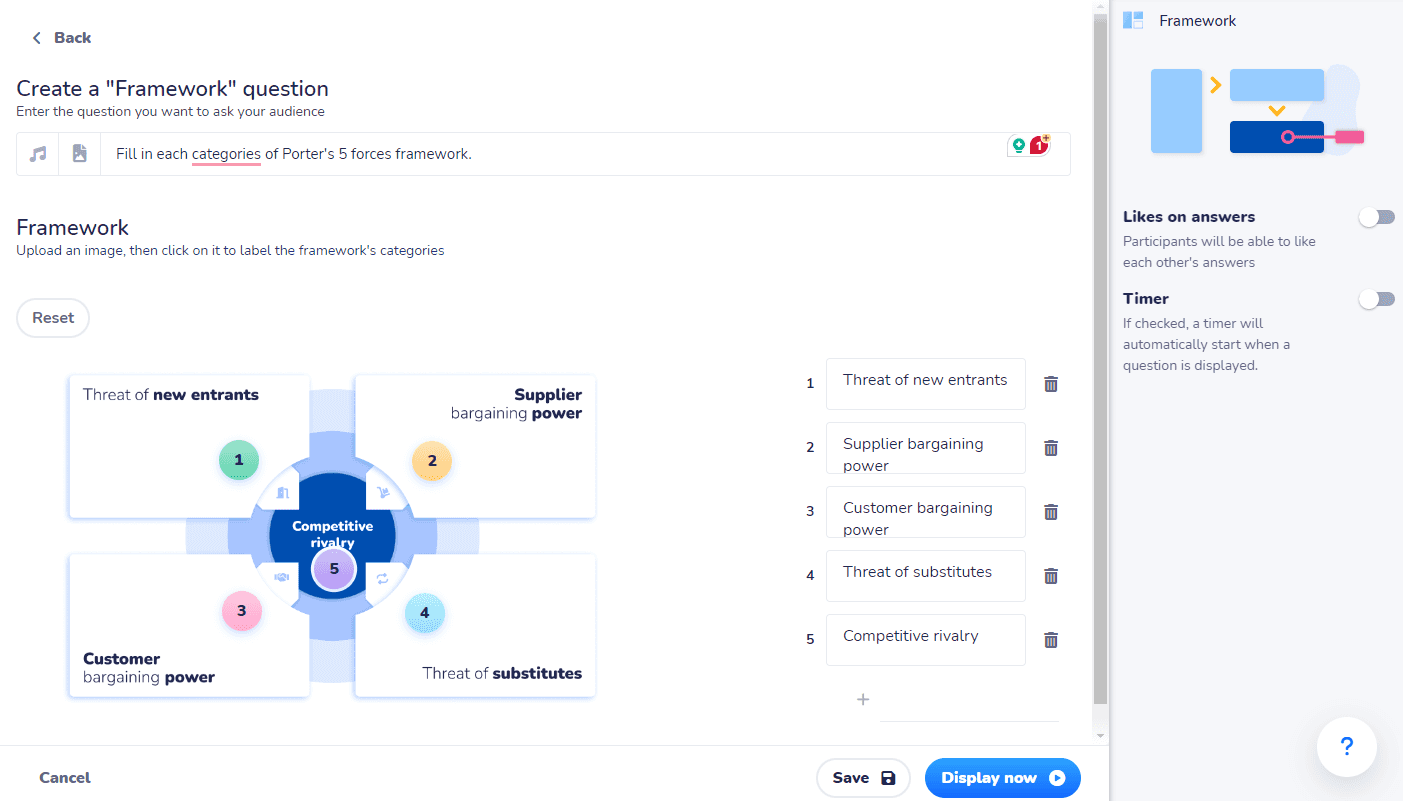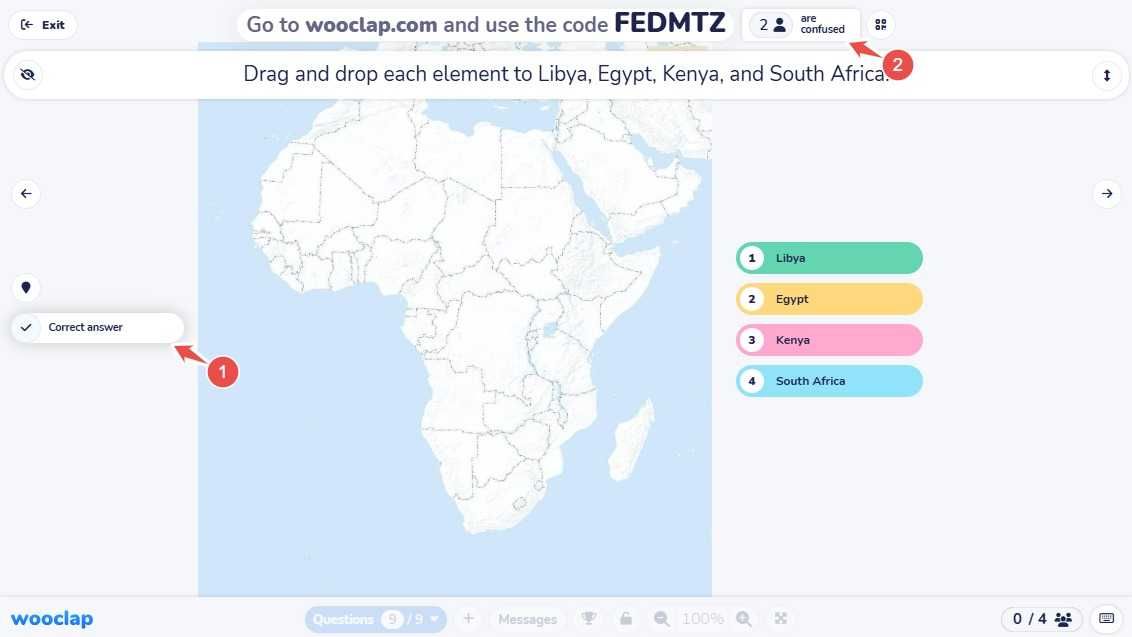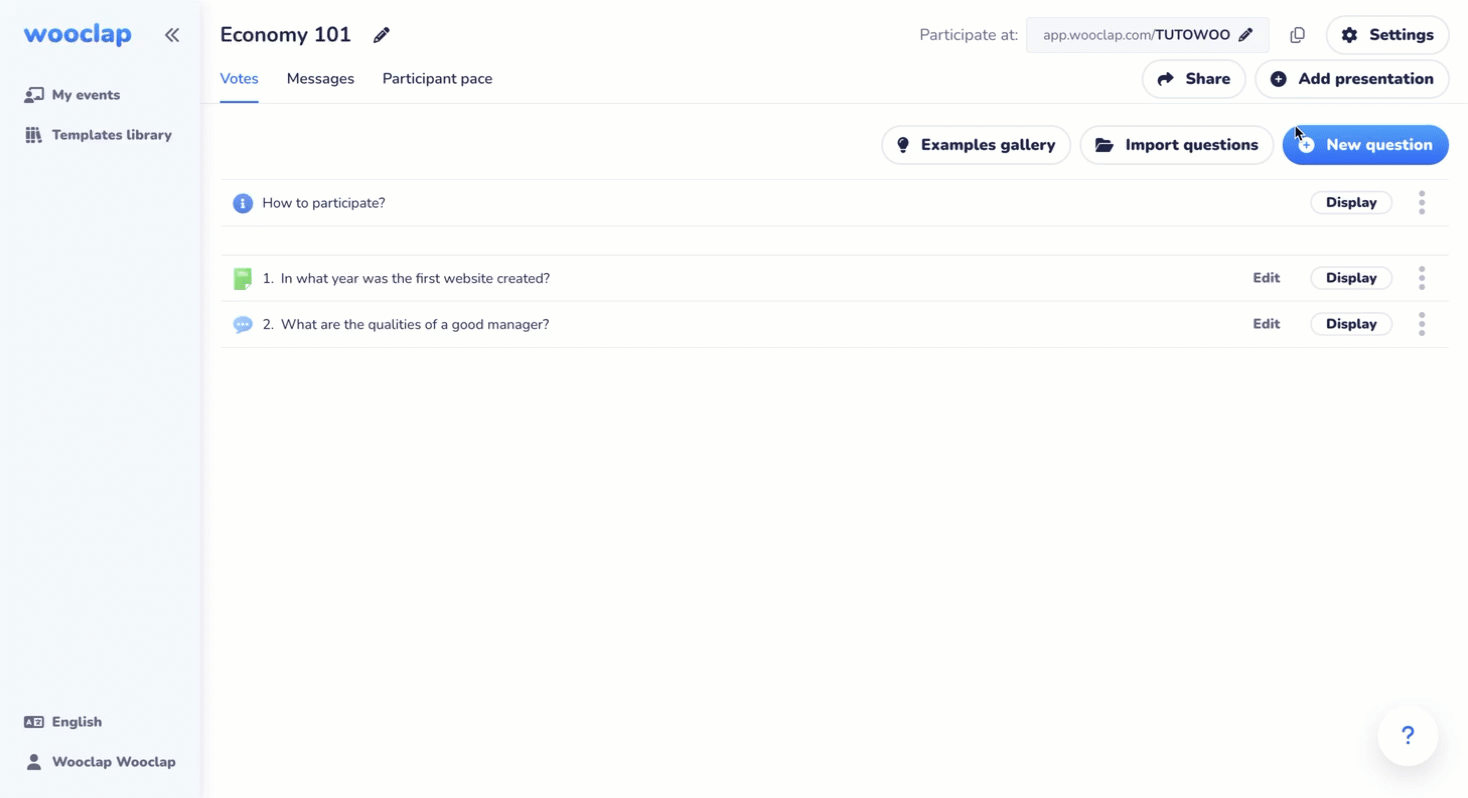Canvas LMS Pricing: Is It Worth It? [June 2025]
30.07.2025 • 10 minutes
Have you navigated Canvas LMS's opaque pricing structure to try to decipher whether it makes sense for your institution? All while wondering why actual platform costs require a sales call? Then you know that even established LMS platforms can make budgeting feel like solving an equation with missing variables.
Canvas has become the backbone of digital education for millions of users.
It offers a genuinely free tier that handles basic course management needs: assignment distribution, grading tools, and student communication channels. But as educational technology has evolved to prioritize active learning and real-time engagement, Canvas's focus only on course administration has left a notable gap in the modern digital classroom.
We analyzed Canvas's pricing tiers and tested how complementary tools enhance its capabilities. We believe it's the ideal choice if:
- You need a free, reliable LMS for basic course management
- Your institution values integration with Google Workspace and Microsoft tools
- You primarily focus on content delivery and assignment collection
- Your budget constraints require starting with free infrastructure
- You appreciate proven, stable platforms over cutting-edge features
However, Canvas's capabilities fall short if:
- You need interactive engagement tools beyond basic discussion forums
- You want real-time polling and audience participation during lessons
- You require diverse question types for checking comprehension while teaching
- You want to transform passive lectures into active learning experiences
In this case, you should consider adding Wooclap: an interactive engagement platform that integrates directly with Canvas via LTI 1.3 to add real-time participation, 20 interactive question types, and engagement analytics that transform your Canvas courses from content repositories into dynamic learning environments.
Because of that, we included a detailed analysis of how Wooclap enhances Canvas's pricing and features in this review, as the best combination for educators seeking comprehensive digital teaching tools. With that said, if you're eager to jump into the Wooclap integration breakdown, go ahead and do so with this link.
❗Disclaimer: Since Canvas LMS doesn't disclose its pricing publicly, we had to rely on third-party sources. All pricing details are estimates and could differ from Canvas LMS' actual costs.
Table of contents
- Canvas LMS Pricing Summary
- Canvas LMS Pricing: In-Depth Overview
- Where Canvas Falls Short
- Wooclap as the Perfect Canvas Add-On
- Canvas Feature Value Breakdown (Enhanced by Wooclap)
- Canvas LMS Pricing FAQ
- Final Verdict: Canvas + Wooclap
Canvas LMS Pricing Summary
| Canvas LMS | Wooclap Education as a Canvas Add-on |
 |  |
Free Plan | |
- Free-for-Teacher: $0 | - $0/user/month |
Basic Plan | |
- Education Basic (hidden price) | - Basic: $6.99/user/month |
Mid-Tier | |
- Education Standard (hidden price) | - Pro: $14.99/user/month |
Premium | |
- Enterprise | - Custom pricing (5+ users) |
Best For | |
Schools needing comprehensive course management and assignment distribution infrastructure | Educators wanting to add real-time interactive engagement to courses hosted on Canvas LMS |
Canvas LMS Pricing: In-Depth Overview

Canvas operates on a freemium model with the unique approach of keeping pricing details behind a sales consultation wall.
While it offers transparent feature comparisons between free and paid tiers, actual costs remain opaque except for third-party research. This structure reflects Canvas's enterprise-focused strategy, where pricing varies based on institution size, feature requirements, and negotiated contracts.
Before we look at what the different plans have to offer, let’s first analyze the free forever plan:
Canvas Free-for-Teacher Plan: $0/month
Canvas offers a comprehensive free plan that may address all your course management requirements without spending a penny. It’s designed specifically for educators, even if their institution isn't a Canvas customer.
This "Free-for-Teacher" account provides access to essential LMS features, including content creation tools for assignments, quizzes, discussions, and video conferences. Educators also get access to the Canvas mobile app suite, third-party application integration, and all core course-level features like announcements, grades, and modules.
However, storage is severely limited at just 50 MB per user/group and 500 MB per course. It also excludes customer service support except for basic account issues like deletions and password resets.
Advanced features such as Blueprint courses, SIS imports for automated roster management, and institutional branding options are completely unavailable. You're also limited to course-level LTI management without the ability to install institution-wide integrations.
| Canvas Free-for-Teacher Plan Pros: | Canvas Free-for-Teacher Plan Cons: |
✅ Free forever plan | ❌ Very limited storage (50 MB user quota) |
✅ Access to core functionalities | ❌ No official support channels |
✅ Mobile app included | ❌ Missing advanced institutional features |
✅ Third-party integrations supported | ❌ No custom authentication options |
Canvas Free-for-Teacher works for individual educators testing the platform or running text-heavy courses, but the 50MB storage limit makes it impractical for courses with a large number of students and assignments. Most educators will quickly hit storage limits and need to upgrade or look elsewhere.
Canvas Paid Plans: Custom Pricing
Canvas structures its paid plans around institutional needs with pricing models typically based on FTE (Full-Time Enrollment) or active user counts.
The paid institutional license addresses the free plan’s limitations with unlimited storage, SIS integration for automated roster management, advanced analytics and reporting tools, and Blueprint courses to create reusable templates.
Additionally, you get access to all customer support options and sub-account management capabilities. This plan also allows you to customize branding and course themes to match your institution’s identity.
| Canvas Paid Plans Pros: | Canvas Paid Plans Cons: |
✅ Comprehensive LMS infrastructure | ❌ No transparent pricing available |
✅ Unlimited storage and users | ❌ Requires annual commitment |
✅ Full institutional control and customization | ❌ High implementation costs |
✅ Enterprise-grade security and compliance | ❌ Limited engagement features without add-ons |
✅ Dedicated support for large deployments | ❌ Significant IT resources needed |
Canvas paid plans deliver robust LMS infrastructure for institutions willing to navigate opaque pricing and invest in implementation. However, even with premium pricing, you'll still need third-party tools like Wooclap for meaningful student engagement.
Canvas Pricing Philosophy
Canvas structures its pricing around institutional needs rather than individual educators.
This makes sense given their target market of large educational institutions, but it creates challenges for individual educators wanting premium features, small departments piloting new tools, schools with limited budgets, and institutions wanting to test before committing to annual contracts.
The lack of transparent pricing means institutions must go through a full sales process just to understand if Canvas fits their budget, making it difficult to compare options or plan for future scaling.
Where Canvas Falls Short
While Canvas is great as a comprehensive course management infrastructure, it has significant gaps in features to support the modern interactive classroom experience:
Limited Real-Time Engagement Tools
- Basic discussion forums and quiz tools can't gauge live comprehension during lectures
- No native polling or audience response system for synchronous sessions
- Forces one-way content delivery rather than interactive dialogue
- Missing tools to check understanding in real-time during presentations
Minimal Interactive Question Variety
- Restricted to traditional quiz formats: multiple choice, true/false, fill-in-blank
- Missing modern formats like word clouds, image labeling, or sorting exercises
- Can't adapt assessments to different learning styles or cognitive levels
- Limits teachers' ability to check deep understanding versus memorization
No In-Class Participation Tracking
- Can't see which students are confused during live sessions
- No anonymous question submission to encourage participation
- Missing real-time feedback mechanisms for immediate instructional adjustment
- Attendance tracking requires manual processes or additional tools
Engagement Analytics Gap
- Shows assignment completion, but not concept comprehension patterns
- No heat maps indicating where students struggle most during lessons
- Can't identify knowledge gaps in real-time for immediate intervention
- Reports focus on grades rather than learning progress and engagement
These limitations have led many educators to look for solutions to extend Canvas with specialized engagement tools to make learning experiences more memorable...
Wooclap as the Perfect Canvas Add-On

Wooclap integrates with Canvas and enables truly interactive learning experiences by adding the engagement layer Canvas lacks.
For educators who appreciate Canvas's robust course infrastructure but need real-time polling, diverse question types, and instant comprehension feedback, Wooclap seamlessly integrates via LTI 1.3 to provide 20 interactive question types, AI-powered content creation, and participation analytics that make every Canvas course come alive.
Backed by neuroscience research, the founders understood that engagement drives retention, so Wooclap focused on what happens during class right from the beginning. It’s not a replacement, but rather a perfect complement to Canvas: you use Canvas for course structure, assignments, and grading, while Wooclap handles the live interaction to improve learning outcomes.
Wooclap excels for instructors who want students thinking rather than just note-taking, professors teaching complex subjects requiring varied assessment methods, and any educator who believes real-time feedback improves both teaching and learning.
Wooclap Free Plan: $0/month
Wooclap’s Free Plan allows educators to test what Canvas’s free tier doesn’t — the influence of real and meaningful engagement in the classroom.
It supports up to 1,000 participants per event with no monthly caps or lockout periods, letting you test Wooclap with your entire lecture hall or multiple class sections without hitting artificial barriers.
Keep in mind that the free plan limits you to using only two of the available 21+ question types in each event. However, this shouldn’t be a problem since Wooclap lets you create unlimited events and access all, with basic attendance monitoring included.
Wooclap’s Free plan is perfect for educators wanting to dip their toes into interactive teaching without commitment.
| Wooclap Free Plan Pros: | Wooclap Free Plan Cons: |
✅ 1,000 participants per event | ❌ Limited to 2 questions per event |
✅ No monthly limits | ❌ Basic export options only |
✅ Access to all question types | ❌ No AI-assisted event creation |
✅ Perfect for testing engagement impact | |
Wooclap's free plan dramatically outperforms Canvas's for audience reach (1,000 participants vs 50 MB storage), making it ideal for educators who want to test interactive teaching with large groups before committing to paid plans.
Wooclap Basic Plan: $7.99/user/month for Education Plans
Priced at $7.99/user/month for educational institutions, Wooclap's Basic plan unlocks unlimited questions per event, enables both live and self-paced questionnaires, and adds Excel and PDF export capabilities for analyzing results. The plan also includes unlimited attendance tracking with full export options. However, it still has the 1,000 participant per event cap.
| Wooclap Basic Plan Pros: | Wooclap Basic Plan Cons: |
✅ Affordable pricing for educational institutions | ❌ Annual billing required |
✅ Unlimited questions types | ❌ No team collaboration yet |
✅ Full export capabilities | ❌ Participants limited to 1,000 |
✅ Self-paced learning options | |
Wooclap's Basic plan delivers exceptional value for individual educators at nearly half the price of Canvas's reported per-student costs. Perfect for professors who need unlimited interactive content without the complexity of a full LMS.
Wooclap Pro Plan: $14.99/user/month for Education plans
At $14.99/user/month for educational institutions, the Pro plan includes everything in the Basic plan plus team collaboration features so departments can share and co-create interactive learning content. You also get access to custom branding options to match your institution's visual identity.
The plan also includes participation via SMS for students without internet access, moderator view for managing large sessions, and priority email and chat support. The icing on the cake is Wooclap’s AI-powered question generation that allows educators to create quiz sets in seconds from PDFs, videos, links, etc.
| Wooclap Pro Plan Pros: | Wooclap Pro Plan Cons: |
✅ AI saves hours on content creation | ❌ Annual commitment required |
✅ Team features for departments | ❌ Capped at 1,000 participants/event |
✅ Professional branding options | |
✅ Multiple engagement channels | |
For less than what many institutions pay per student for Canvas, Wooclap Pro gives every educator AI-powered tools and team collaboration. The perfect addition for departments serious about engagement.
Wooclap Enterprise Plan: Custom Pricing (Starting at 5+ Users)
Wooclap's Custom plan starts with a five user minimum, making it accessible for departments rather than requiring institution-wide commitments. It includes everything in the Pro plan plus full LTI 1.3 integration, making it the perfect plan to seamlessly bring interactive learning content to your Canvas course.
The plan also includes seamless SAML/SSO/CAS authentication, synchronized attendance that automatically updates your Canvas gradebook, a dedicated support team, and access to Wooclap AI upon request.
| Wooclap Enterprise Plan Pros: | Wooclap Enterprise Plan Cons: |
✅ Unlimited participants per event | ❌ Minimum 5-user requirement |
✅ Seamless integrations with LMS | ❌ Features exceed small team needs |
✅ Advanced authentication options | |
✅ Synchronized attendance with LMS systems | |
With native Canvas integration and unlimited participants, Wooclap Custom costs a fraction of typical Canvas add-ons while delivering more engagement value. The low 5-user minimum makes it perfect for departmental pilots and institution-wide adoption.
Canvas LMS Pricing: Feature Value
Canvas Features: Which Features Help Canvas Excel
Canvas provides a comprehensive LMS infrastructure that uses a hierarchical account structure to map to your organization. It uses detailed permission management to ensure granular control over who can do what and institution-wide analytics for tracking learner progress and performance.
Its course management capabilities include complete syllabus creation and management, module-based course organization with structured learning paths, robust assignment submission and grading workflows.
Canvas Features: How Wooclap Addresses Canvas's Gaps
Wooclap offers more engaging interactive question types, discussion frameworks, and gamification options compared to Canvas's basic assignment types.
While Canvas offers standard multiple-choice quizzes and text-based discussions, Wooclap provides over 21+ interactive question types, including open-ended questions, polls, and discussion frameworks (like SWOT analysis and Porter’s 5). Responses can be displayed in real time using specific visualizations.

Instructors can see who's engaged and who's struggling by enabling the "I'm confused" and “Correct answer” buttons for real-time feedback without disrupting the class. Additionally, it gamifies learning with a competition mode to encourage some healthy competition, and anonymous options encourage honest responses.

Finally, Wooclap's AI-powered content creation can speed up your course creation process on Canvas. It can generate complete interactive question sets from PDFs and documents, create engagement activities from YouTube videos, transform web links into interactive lessons, and build assessments from simple topic prompts.

Integration Value: Canvas LMS + Wooclap
The real magic happens when you integrate Wooclap with Canvas via LTI 1.3.
Students can log in to Wooclap using their Canvas credentials to participate in any event. Their scores from Wooclap events are automatically synced to the Canvas gradebook, saving educators from manual grade entry. Another cool feature of the integration is that Wooclap also offers custom branding options with its higher plans, ensuring consistency between your Canvas and Wooclap accounts.
Want to learn more about how Wooclap can improve your Canvas LMS experience?
Canvas LMS Pricing: Hidden Costs & Other Considerations
Canvas LMS: Hidden Costs
Beyond the base licensing fees, Canvas comes with significant hidden implementation costs that can catch institutions off guard.
Employee training represents another expense. Canvas’s training program costs depend on the institution level (K-12 to university) and subscription type. If you need additional training, you’ll have to pay an additional charge. This can easily get expensive as you scale to include more instructors.
Feature limitations present another form of hidden cost.
Despite its wide range of features, Canvas offers limited interactive content options without third-party add-ons. Its quiz engine is pretty basic, and gamification options are minimal, potentially requiring third-party solutions or custom API development and usage that can incur extra charges.
Also, most notably in 2025, Canvas lacks built-in AI assistance for content creation, meaning educators spend significantly more time developing course materials compared to AI-enhanced platforms.
Canvas LMS: How Can Wooclap Help You Scale With Canvas?
Wooclap starts at $7.99/month per educator (not per student), so scaling is based on the number of educators using the platform rather than the total number enrolled in a program.
For its price, Wooclap provides comprehensive engagement features that improve learning outcomes, not just managing administrative tasks. Moreover, it has a much lower learning curve compared to Canvas LMS. Its user-friendly interface needs minimal training for both the educator and student, delivering immediate engagement value from day one.
Canvas LMS Pricing: Final Verdict
Canvas LMS delivers a cloud-based learning management system infrastructure with enterprise-grade features for institutions willing to navigate opaque pricing and complex implementation.
It's a solid choice for large educational institutions with dedicated IT resources, multi-department needs, and substantial budgets. However, even with its robust infrastructure, Canvas falls short in student engagement capabilities that drive modern learning outcomes.
To create an engaging learning environment, we recommend considering Wooclap as an add-on:
- Educators seeking interactive engagement tools beyond basic quizzes and discussions
- Institutions wanting AI-powered content creation to save faculty time
- Departments needing cost-effective engagement without per-student pricing
- Individual educators frustrated by Canvas's complexity and hidden costs
At the end of the day, the best approach is to assess your actual needs: if you need full LMS infrastructure, Canvas may be worth the investment, but you'll still need engagement tools, and that’s where Wooclap can help.
Canvas LMS Pricing: Frequently Asked Questions
How much does Canvas LMS cost?
Canvas doesn't publish pricing publicly. Costs vary based on institution size, with reports suggesting $4-9 per student annually for smaller schools. Enterprise institutions negotiate custom rates based on FTE enrollment. Contact Canvas sales for specific quotes.
Is Canvas LMS free?
Yes, Canvas offers a Free-for-Teacher account with core LMS features including course creation, assignments, quizzes, and discussions. However, it has significant limitations: 50MB storage per user, no customer support, no advanced features, and no institutional tools.
What's missing from Canvas Free-for-Teacher?
The free version lacks: customer support (except account issues), Blueprint courses, SIS integration, admin tools, institutional branding, multiple grading periods, advanced analytics, and Canvas's proprietary New Quizzes tool. Storage is limited to 50MB per user and 500MB per course.
How does Canvas pricing compare to competitors?
Without transparent pricing, direct comparison is difficult. However, Canvas is generally considered premium-priced compared to Moodle (free/open-source), Google Classroom (free), and Blackboard (similar opaque pricing). The value comes from comprehensive features and reliability rather than competitive pricing.
Why should I add Wooclap to Canvas?
Canvas provides excellent course management but basic engagement tools. Wooclap adds 21+ interactive question types, real-time participation tracking, AI-powered content creation, and proven engagement features. At $7.99/month for educators, it's a cost-effective way to transform passive Canvas courses into active learning experiences.
Still have more questions? Read our in-depth Canvas vs Google Classroom vs Wooclap comparison to get more details on how Canvas works.
Writer

The Wooclap team
Make learning awesome & effective
Subject
A monthly summary of our product updates and our latest published content, directly in your inbox.
